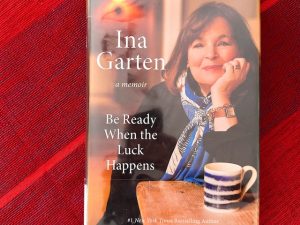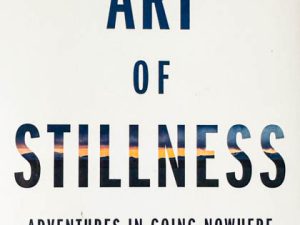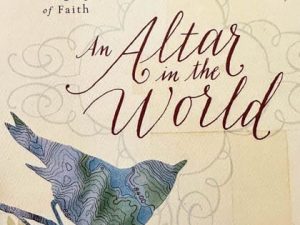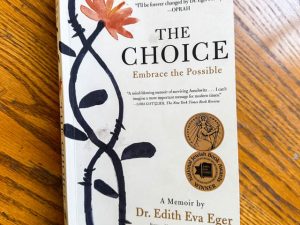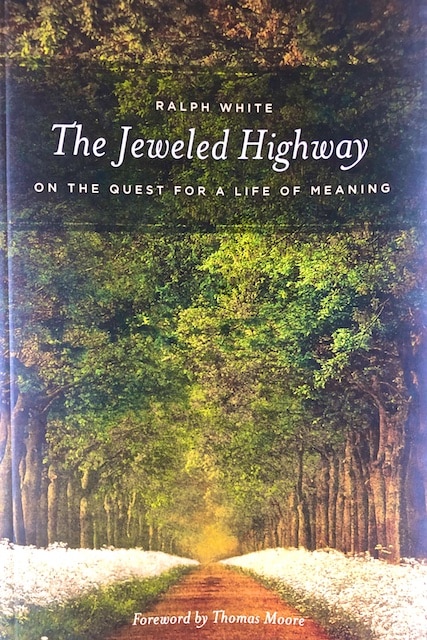
Back in college in Ann Arbor, I started something similar to New York City’s Open Center. We called our fledgling effort Freedom Center. It got bogged down in fundraising, and I ended up abandoning it to move to NYC to make a living. Partly I let it go because I came to feel Christian Science was more precisely what the world needed to solve its problems, but also partly because I got tired of herding cats. Initially the idea was to create a holistic community as an alternative to the drinking and drug culture on college campuses, but people kept coming to our meetings high, and that simply ran counter to what I had envisioned.
I tell you all this because when I came to NYC in the ’80’s, I had more than a passing interest in the Open Center. I really appreciated what they had achieved. A lot of that was on Ralph White’s shoulders, the man who wrote this memoir. He also had experience at Findhorn and Omega, and many other similar centers around the world.
He is against materialism, consumerism, fundamentalism, and communism, and I agree with him on all that. Most holistic centers do include some things I’m not a fan of, like alchemy and the occult, but they allow one to discern for oneself, encouraging you to only embrace what resonates. And they champion many things I do believe in: education, transformation, spiritual seeking, ecology and sustainability, transcending racism and prejudice, inspiration, hope for and the creation of a positive future, importance of the inner life, and the opening of consciousness. I wish Christian Science had found more of a port in these places, and this is something I may be inspired to provide a bridge for in the future.
Ralph White has had some amazing experiences traveling the globe, and is a Rudolph Steiner fan, of whom I’ve not read much more of than Waldorf School stuff. He traipsed through South America, as well as overland into Tibet. There is nudity and drugs discussed here, and much casting about, but there is also a lot of sincere effort at finding a meaningful life for himself, while making the world better in the meantime.
Here are the bits I highlighted:
- “Beneath a brilliant night sky high in the world’s greatest mountains, it was difficult to take the certainties of scientific materialism seriously. How could we know, a mere 200 years after the rise of modern technology, that only the sense-perceptible world is real? It seemed short-sighted to say the least.”
- “The whole experience of returning to modern urban life produced in me an overwhelming sensation that Western civilization was destroying both the Earth and the souls of its inhabitants. From the obscenely grim factories to the pinched, fearful, angry faces of the people, it was clear that this modern world of industry and profit that had so much of the planet in its grip was fundamentally out of balance with the universe. Right down to the deepest core of my being, I felt this truth. The world today must be restored to health and well-being.”
- “The awareness suddenly flooded me that I was here, on this earth, for one primary purpose– simply to be myself. I could make no greater contribution than to express my authentic nature in each moment as best I could. Living this way was the path to both the greatest fulfillment and the greatest service… Personal authenticity and service to humanity came together.”
- “At the end of each week, when the group members described their experiences, the change was usually phenomenal. Simply place people into an atmosphere as conducive to love as Findhorn was, and they blossomed. Hearts opened, fears fell away, laughter flowed.”
- “It was usual at Findhorn for people to be placed in areas in which they had no expertise so they did not bring egotistical notions of their own superiority to the task at hand.”
- “Ultimately, I felt America was at the heart of the struggle for the soul of humanity… my heart was drawn to the openness of America and its sense of spiritual dynamism. It is truly the ‘cradle of the best and the worst,’ in the words of Leonard Cohen.”
- “Beaten paths are for beaten men.”
- “To start the Open Center was to engage in a kind of spiritual ‘mission impossible.'”
- “What were these centers at the deepest level? Places where people’s lives were changed.”
- ” I wanted to avoid the New Age flakiness that was the curse of independent spirituality. We needed authentic spiritual substance… As far as I was concerned the holistic impulse was as much about changing the environment, the economy, and society as it was about changing ourselves. Yes, transformation began in the inner self and often led to a longer journey that could take years or decades and was never fully complete. But what was the point of this awakening of consciousness if its fruits were never returned to the world?”
- “This is what the Open Center is here to offer: high quality presentations of intellectual substance that address the intersection of soul and society, and superb artistic events that are hip, rhythmic, evocative, and transcendent.”
- “We organized the first New York conferences on socially responsible investing and the destruction of the rainforests.”
- “Wherever traditional Tibetan culture remained strong the people had nobility and warmth, and wherever Communist values had taken hold there was little but an intense concern with material possessions.”
- “I felt the dead hand of extreme materialism close around China’s heart like a fist with rigor mortis.”
- “My travels had long ago convinced me that most citizens of the planet share a common human decency and have similar hopes and dreams of happiness and fulfillment. They also share a yearning for insight into the truths that make the riddles of life intelligible.”
- “Our personal transformation serves little if it is unaccompanied by a positive social and environmental direction.”
- “Rudolph Steiner took the view that human experience is fundamentally unintelligible and filled with countless riddles and enigmas. He felt that one ought to investigate esoteric wisdom with every fiber of honesty, intelligence, and strength that one could muster. I can only agree. Since childhood I have wanted to know why we are here, what the purpose of human life is, and how we can lead a life of meaning. In Steiner’s work I found a non-dogmatic lover of wisdom who saw his task as engaging with these core questions.”
- “My task now is to find a balance between the inner and outer realms of existence, between spiritual contemplation and social engagement, between pursuing wisdom and practicing love, between the multiple ideas and ways of being coming to us now from the West, East, North, South so that a free, tolerant, and multicultural world can evolve further in this country for the benefit of all.”
- “Certainly anyone who tries to dismiss our emerging multicultural future as impractical should take a ride on the Number 7 subway through Queens and see how people from literally all over the world coexist, and even find pleasure in their differences.”
- “Life has only strengthened my conviction that an inner radiance lies at the heart of each human being awaiting discovery and expression, and that our vast cosmos ultimately supports those that set out to find it.”
I enjoyed this book, even the laundry list at the end describing each leading holistic center around the world. I’d like to visit the one on Eagle Island, near Vancouver Island in Canada. If you want to read a memoir of an icon spiritual seeker, you might like to read this too. I give the book 4 stars.
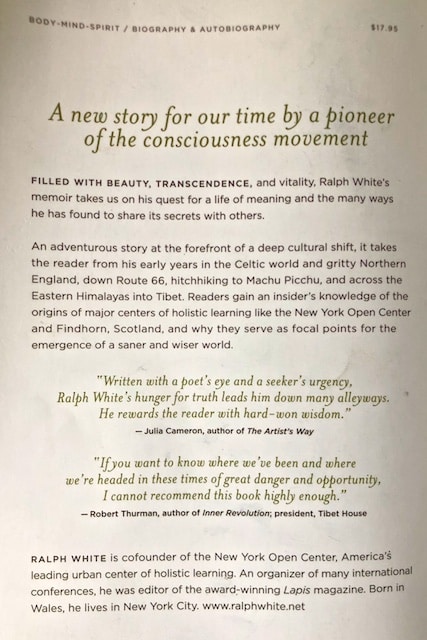
3 Comments
-
I love “Beaten paths are for beaten men.” Love you too, Polly!
-
Sounds like a great book.
Pingbacks
-
[…] Jeweled Highway (4 stars spiritual seeker […]
